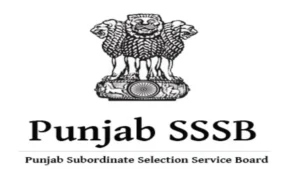The Bachelor of Science in Agriculture (BSc Agriculture) program for 2024 offers a detailed and well-structured syllabus designed to provide students with a comprehensive understanding of modern agricultural practices and technologies. This four-year undergraduate course is organized into a series of semesters, each featuring a carefully curated selection of core and elective subjects. These subjects are aimed at equipping students with both theoretical knowledge and practical skills essential for a successful career in agriculture.
From foundational courses in soil science and plant pathology to advanced topics in agribusiness management and high-tech horticulture, the BSc Agriculture Syllabus 2024 ensures a thorough and progressive learning experience. Explore the semester-wise subjects below to gain insights into the educational journey of the BSc Agriculture program.
BSc Agriculture Syllabus 2024
The Bachelor of Science in Agriculture (BSc Agriculture) is a comprehensive four-year undergraduate program designed to equip students with the knowledge and skills needed to excel in modern agricultural practices. This program blends theoretical understanding with practical application to prepare students for various roles in the agricultural sector. The program is recognized as a professional degree by the Indian Council of Agricultural Research (ICAR), ensuring that it adheres to national standards and adequately prepares students for professional careers in agricultural science with BSc Agriculture Syllabus 2024.
BSc Agriculture Syllabus 2024: Key Highlights
Check the following table for more information on BSc Agriculture Syllabus 2024:
| Particulars | Details |
|---|---|
| Course Name | BSc Agriculture |
| Course Duration | 4 years |
| Total Semesters | 8 |
| BSc Agriculture Core Subjects |
|
| BSc Agriculture Elective Subjects |
|
BSc Agriculture Syllabus 2024 & Subjects – Detailed Overview
The Bachelor of Science in Agriculture (BSc Agriculture) program is a four-year course designed to give students a thorough understanding of agricultural science. The BSc Agriculture Syllabus 2024 is carefully structured to provide a solid foundation in essential areas of agriculture while offering options for students to explore their interests through elective subjects.
| Subject | Topics Covered |
|---|---|
| Principles of Crop Production |
|
| Fundamentals of Soil Science |
|
| Elements of Genetics |
|
| Agricultural Meteorology |
|
| Elementary Crop Physiology |
|
| Introductory Plant Pathology |
|
| Principles of Plant Breeding |
|
| Livestock Production and Management |
|
| Introduction to Plant Biotechnology |
|
| Agri-Business Management |
|
| Crop Improvement and Food Safety |
|
| Integrated Crop Management |
|
| Applied Horticulture |
|
| Agro-Industrial Training |
|
| Commercial Beekeeping |
|
| Mushroom Cultivation Technology |
|
| Seed Production and Technology |
|
| Floriculture and Landscape Architecture |
|
| Weed Management |
|
| Crop Diseases |
|
| Soil Microbiology |
|
| Soil Fertilizers |
|
| Horticulture |
|
| Silviculture and Agroforestry |
|
| Agricultural Economics |
|
| Post-Harvest Management |
|
Specialisations Syllabus for BSc Agriculture
The Bachelor of Science in Agriculture (BSc Agriculture) program offers a variety of specializations, allowing students to dive deep into specific areas of agricultural science that align with their career interests and aspirations. Each specialization comes with a unique syllabus designed to impart specialized knowledge and practical skills essential for the respective field. Let’s learn about the BSc Agriculture Syllabus 2024 semester-wise:
| Specialization | Syllabus |
|---|---|
| Humanities and Basic Sciences |
|
| Agricultural Economics |
|
| Agricultural Engineering |
|
| Agricultural Entomology |
|
| Agricultural Extension Education |
|
| Agricultural Microbiology |
|
| Agricultural Statistics |
|
| Agronomy |
|
Semester Wise BSc Agriculture Syllabus 2024
The Bachelor of Science in Agriculture (BSc Agriculture) program is structured over eight semesters, spanning four years. This comprehensive BSc Agriculture Syllabus 2024 is designed to offer students a blend of core and elective subjects, allowing them to explore various aspects of agricultural science in depth. Let’s see semester semester-wise BSc Agriculture Syllabus 2024 now:
| Semester | Subject | Topics Covered |
|---|---|---|
| Semester I | Fundamentals of Agronomy | Introduction to agronomy, crop classification, crop production principles, etc. |
| Fundamentals of Genetics | Basic genetics concepts, Mendelian inheritance, genetic variation, etc. | |
| Fundamentals of Soil Science | Soil properties, soil formation, soil chemistry, soil physics, etc. | |
| Fundamentals of Horticulture | Basics of horticulture, fruit and vegetable cultivation, nursery management, etc. | |
| Rural Sociology & Educational Psychology | Rural social structures, educational psychology principles, etc. | |
| Introduction to Forestry | Forest types, forest management, forestry practices, etc. | |
| Introductory Animal Husbandry | Basic principles of animal husbandry, livestock management, etc. | |
| Comprehension & Communication Skills in English | Reading, writing, and communication skills development. | |
| Agricultural Heritage | Historical aspects of agriculture, traditional practices, etc. | |
| Introductory Biology or Basic Agriculture 1 | Basic biological concepts or introductory agricultural principles. | |
| Elementary Mathematics or Basic Agriculture 2 | Basic mathematics or advanced agricultural principles. | |
| Semester II | Fundamentals of Crop Physiology | Plant physiological processes, growth, and development. |
| Fundamentals of Plant Biochemistry | Biochemical processes in plants, metabolic pathways, etc. | |
| Fundamentals of Entomology-1 | Introduction to entomology, insect biology, and pest management. | |
| Fundamentals of Agricultural Economics | Economic principles applied to agriculture, market dynamics, etc. | |
| Principles of Organic Farming | Organic farming practices, soil health, crop rotation, etc. | |
| Fundamentals of Plant Pathology | Plant diseases, disease management, pathogen identification, etc. | |
| Production Technology for Vegetables and Spices | Techniques for growing and processing vegetables and spices. | |
| Fundamentals of Agricultural Extension Education | Methods of agricultural extension, technology transfer, etc. | |
| Food Processing and Safety Issues | Principles of food processing, safety standards, and quality control. | |
| Human Values & Ethics | Ethical considerations in agriculture, human values, and social responsibility. | |
| Soil and Water Conservation Engineering | Techniques for conserving soil and water, erosion control, and sustainable practices. | |
| Semester III | Crop Production Technology I (Kharif Crops) | Cultivation practices for Kharif crops, crop management techniques, etc. |
| Practical Crop Production I (Kharif Crops) | Hands-on experience with Kharif crop production, practical techniques, etc. | |
| Fundamentals of Plant Breeding | Plant breeding methods, genetic improvement techniques, etc. | |
| Agricultural Microbiology | Soil and plant-associated microorganisms, their role in agriculture, etc. | |
| Agricultural Finance and Cooperation | Financial management in agriculture, cooperative principles, etc. | |
| Farm Machinery and Power | Types and use of farm machinery, power sources, equipment maintenance, etc. | |
| Principles of Integrated Disease Management | Strategies for managing plant diseases, integration of different control methods. | |
| Environmental Studies & Disaster Management | Environmental impacts of agriculture, disaster preparedness and management. | |
| Dairy Science | Dairy farming practices, milk production, and management. | |
| Fundamentals of Entomology-II | Advanced entomology concepts, insect pest management, etc. | |
| Semester IV | Crop Production Technology II (Rabi Crops) | Cultivation practices for Rabi crops, crop management techniques, etc. |
| Practical Crop Production II (Rabi Crops) | Hands-on experience with Rabi crop production, practical techniques, etc. | |
| Principles of Seed Technology | Seed production, processing, storage, and quality management. | |
| Problematic Soils and their Management | Identification and management of problematic soils, soil amendments, etc. | |
| Renewable Energy and Green Technology | Use of renewable energy in agriculture, green technologies and practices. | |
| Production Technology for Ornamental Crops, MAP and Landscaping | Techniques for growing ornamental crops, medicinal and aromatic plants, and landscaping. | |
| Entrepreneurship Development and Business Communication | Skills for starting and managing agricultural businesses, effective communication. | |
| Introductory Agro-meteorology & Climate Change | Basic concepts in agro-meteorology, impact of climate change on agriculture. | |
| Poultry Production & Management | Poultry farming practices, management of poultry systems, etc. | |
| Semester V | Rainfed and Dryland Agriculture | Practices for rainfed and dryland farming, soil and water conservation techniques. |
| Crop Improvement-I (Kharif Crops) | Improvement techniques for Kharif crops, breeding methods, etc. | |
| Pests of Crops and Stored Grain and their Management | Pest identification, management strategies for crops and stored grain. | |
| Agricultural Marketing Trade & Prices | Market structures, pricing mechanisms, and trade practices in agriculture. | |
| Protected Cultivation and Secondary Agriculture | Techniques for controlled environment agriculture and secondary crop production. | |
| Diseases of Field and Horticultural Crops and their Management-I | Disease management strategies for field and horticultural crops. | |
| Production Technology for Fruit and Plantation Crops | Techniques for growing and managing fruit and plantation crops. | |
| Communication Skills and Personality Development | Development of effective communication and personal skills. | |
| Intellectual Property Rights | Concepts of IP rights, their importance in agriculture, and protection mechanisms. | |
| Principles of Food Science & Nutrition | Basics of food science, nutritional principles, and food safety. | |
| Geo-informatics and Nanotechnology | Application of geo-informatics and nanotechnology in agriculture. | |
| Elective-1 | Specialized elective course based on student’s interest. | |
| Semester VI | Farming Systems, Precision Farming & Sustainable Agriculture | Advanced farming systems, precision agriculture techniques, and sustainability practices. |
| Crop Improvement-II (Rabi Crops) | Improvement techniques for Rabi crops, breeding methods, etc. | |
| Manures, Fertilizers and Soil Fertility Management | Types and application of manures and fertilizers, soil fertility enhancement. | |
| Farm Management, Production & Resource Economics | Farm management practices, resource use, and economic analysis. | |
| Diseases of Field and Horticultural Crops and their Management-II | Advanced disease management strategies for field and horticultural crops. | |
| Post-harvest Management and Value Addition of Fruits and Vegetables | Techniques for post-harvest handling, processing, and value addition. | |
| Watershed and Wasteland Management | Management practices for watersheds and wastelands. | |
| Beneficial Insects and Pest of Horticultural Crops and their Management | Role of beneficial insects and pest management in horticulture. | |
| Elective-2 | Specialized elective course based on student’s interest. | |
| Educational Tour | Field visits and practical exposure to agricultural practices and technologies. | |
| Semester VII | General Orientation & On-campus Training | Training provided by different faculties, general orientation. |
| Production Technology for Bioagents and Biofertilizer | Techniques for producing bioagents and biofertilizers. | |
| Project Report Preparation, Presentation, and Evaluation | Preparation, presentation, and evaluation of a project report. | |
| Seed Production and Technology | Methods and technologies for seed production. | |
| Mushroom Cultivation Technology | Techniques for cultivating mushrooms. | |
| Soil, Plant, Water, and Seed Testing | Methods for testing soil, plant, water, and seed quality. | |
| Commercial Beekeeping | Practices and management of commercial beekeeping. | |
| Semester VIII | General Orientation & On-campus Training | Continued training by different faculties, general orientation. |
| Production Technology for Bioagents and Biofertilizer | Advanced techniques for producing bioagents and biofertilizers. | |
| Project Report Preparation, Presentation, and Evaluation | Final project report preparation, presentation, and evaluation. | |
| Seed Production and Technology | Advanced seed production techniques and technologies. | |
| Mushroom Cultivation Technology | Advanced techniques for mushroom cultivation. | |
| Soil, Plant, Water, and Seed Testing | Comprehensive testing methods for soil, plants, water, and seeds. | |
| Commercial Beekeeping | Advanced practices and management in commercial beekeeping. |



 Assam Police Constable Recruitment 2026 ...
Assam Police Constable Recruitment 2026 ...
 PSSSB Assistant Chemist Admit Card 2026 ...
PSSSB Assistant Chemist Admit Card 2026 ...
 APPSC Exam Dates 2025-26 Out For Various...
APPSC Exam Dates 2025-26 Out For Various...




 Adda247 Job portal has complete information about all Sarkari Jobs and Naukri Alerts, its latest recruitment notifications, from all state and national level jobs and their updates.
Adda247 Job portal has complete information about all Sarkari Jobs and Naukri Alerts, its latest recruitment notifications, from all state and national level jobs and their updates.



